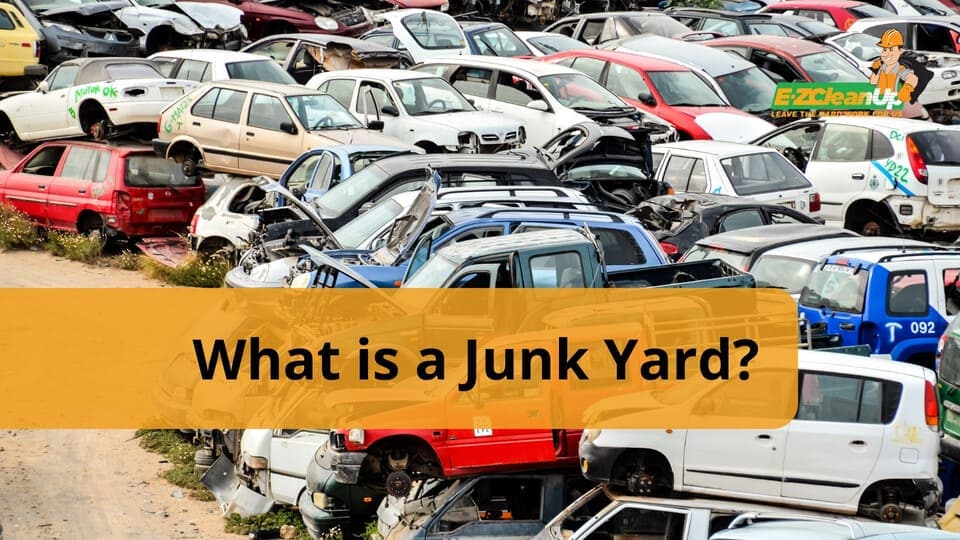The Financial and Environmental Benefits of Recycling Junk Vehicles
Recycling junk cars and trucks presents numerous financial and ecological benefits that prolong well past waste reduction. By recovering as much as 90% of automobile parts, this practice dramatically lessens garbage dump concern while protecting necessary natural deposits. It reduces down on power use and greenhouse gas emissions linked to raw product extraction and manufacturing. The procedure additionally produces job opportunity throughout numerous sectors, from taking apart to logistics, and offers consumers with cost-efficient automobile parts. These benefits emphasize the diverse value of recycling scrap cars, yet there are even more aspects to think about when evaluating its full influence.
Decreasing Land Fill Waste
Reducing landfill waste with the recycling of scrap vehicles plays an essential role in ecological preservation. Reliable recycling procedures can significantly reduce the quantity of waste that ends up in garbage dumps when automobiles get to the end of their life cycle. Scrap cars, otherwise appropriately reused, add to the expanding problem of landfill overcapacity, intensifying ecological degradation and possibly polluting dirt and groundwater with harmful substances such as oil, gas, and hefty metals.

Moreover, the reusing process minimizes the adverse results of vehicle waste on biodiversity. Garbage dumps are notorious for interfering with local communities, and decreasing the influx of junk autos helps preserve natural habitats. Ultimately, reusing junk automobiles is a critical approach that fosters sustainable waste administration, lining up with broader ecological goals.
Conserving Natural Resources
Along with mitigating garbage dump overcapacity, recycling junk cars and trucks plays a considerable role in saving natural deposits. The auto sector is heavily reliant on different metals, plastics, and other products that call for substantial mining and processing. By reusing junk vehicles, we dramatically reduce the demand for basic materials, thereby curbing the ecological deterioration connected with mining tasks. Recycling steel from old lorries lowers the requirement for iron ore removal, which in turn lowers power usage and greenhouse gas exhausts.
Furthermore, the process of recycling vehicle elements such as aluminum, lead, and copper is far less energy-intensive than generating these materials from virgin resources. This energy financial savings translates directly into lowered fossil gas consumption and reduced carbon footprints (junk car buyers). In addition, by redeeming and repurposing materials, we prolong the lifecycle of non-renewable resources, ensuring they continue to be readily available for future usage
In addition, reusing auto liquids like antifreeze, oil, and transmission liquid protects against harmful compounds from infecting soil and water sources. With organized reusing efforts, these fluids can be purified and reused, advertising a circular economy and additional diminishing the stress on natural deposits. Thus, reusing junk vehicles uses a multifaceted technique to saving our earth's important all-natural assets.
Developing Job Opportunities
The recycling of scrap vehicles not only profits the setting yet also boosts financial growth by creating work chances. This expanding sector uses a wide range of work prospects, varying from the preliminary collection and transport of old cars to the detailed procedures of dismantling, arranging, and repurposing the numerous elements.

The proliferation of reusing plants additionally enhances the task market, demanding roles such as engineers, equipment drivers, and quality control professionals to make certain and take care of the innovative equipment compliance with ecological policies. Even administrative settings, such as sales, advertising, and customer care, see a rise as the market expands.
Decreasing Production Prices
By including recycled products from scrap vehicles, producers can considerably lower manufacturing prices. The usage of recycled steel, light weight aluminum, and various other important steels reduces the need for raw material removal, which is both pricey and energy-intensive. This not only conserves all-natural resources however likewise translates right into significant expense savings for vehicle manufacturers. The power needed to process recycled products is considerably much less than that required to generate new materials from the ground up. As a result, this decrease in energy usage straight associates with reduced manufacturing costs.
Furthermore, the reusing procedure assists streamline the supply chain by providing a steady influx of products that are easily available and commonly cheaper than freshly mined resources. These expense performances are particularly important in a highly competitive industry like automotive manufacturing, where margins can be razor-thin. In addition, the recycling of junk cars and trucks aids alleviate the unstable prices of resources, enabling suppliers to better forecast and regulate their manufacturing budgets.
Giving Affordable Car Parts
When scrap cars and trucks are recycled, the availability of economical automobile parts significantly increases, benefiting both consumers and repair stores. Recycled car parts are commonly cost a portion of the expense of repairs, giving a cost-effective option for vehicle owners and auto mechanics. This affordability can be essential for individuals that might not have the monetary methods to buy brand-new components, enabling them to preserve their automobiles in safe and operational problem.
Service centers likewise gain from this enhanced schedule of cost effective parts. By sourcing recycled parts, these organizations can minimize their operational prices, which can be handed down to clients through lower service fee. This, consequently, can cause greater client contentment and commitment, as customers value the cost financial savings without endangering on quality.
Additionally, the high quality of recycled components has actually boosted dramatically over the years, thanks to advancements in recycling procedures and high quality control procedures. Numerous recycled parts undertake strenuous screening to ensure they fulfill market criteria, providing integrity similar to repairs - sell my junk car today. By providing a high-grade and financially feasible option, the recycling of scrap cars and trucks plays a critical function in sustaining both the vehicle repair work sector and the broader consumer market
Verdict
Reusing junk autos presents significant financial and environmental advantages by considerably decreasing landfill waste and saving all-natural sources. In general, the recycling of junk vehicles sustains both economic development and sustainability purposes.
Recycling junk cars and trucks presents numerous financial and environmental advantages that extend well beyond waste reduction. Junk cars and trucks, if not effectively recycled, contribute to the expanding trouble of land fill overcapacity, intensifying environmental degradation and possibly infecting dirt and groundwater with harmful compounds such as oil, gas, and hefty steels.
By reusing scrap automobiles, we significantly minimize the demand for raw materials, therefore curbing the environmental destruction connected with mining activities.When scrap cars and trucks are recycled, the accessibility of budget friendly automobile components considerably boosts, benefiting both consumers and repair work stores.Reusing junk automobiles offers considerable economic and ecological advantages by considerably minimizing landfill waste and conserving all-natural resources.